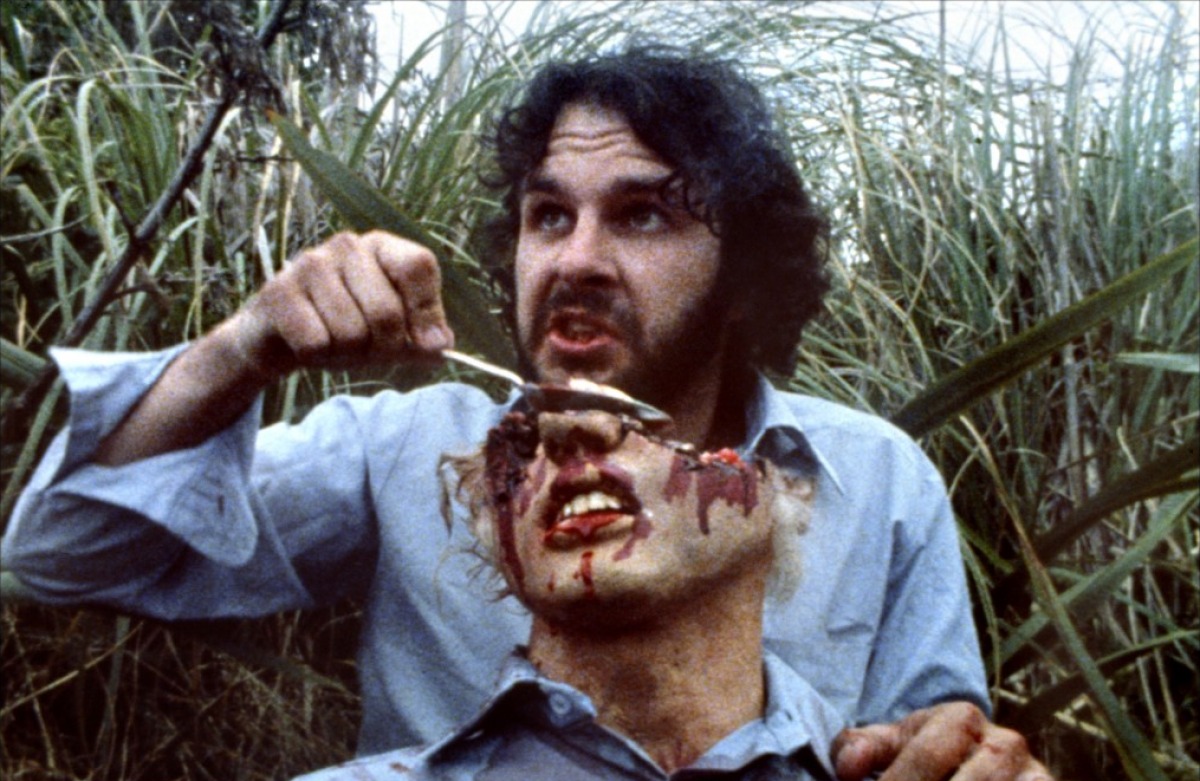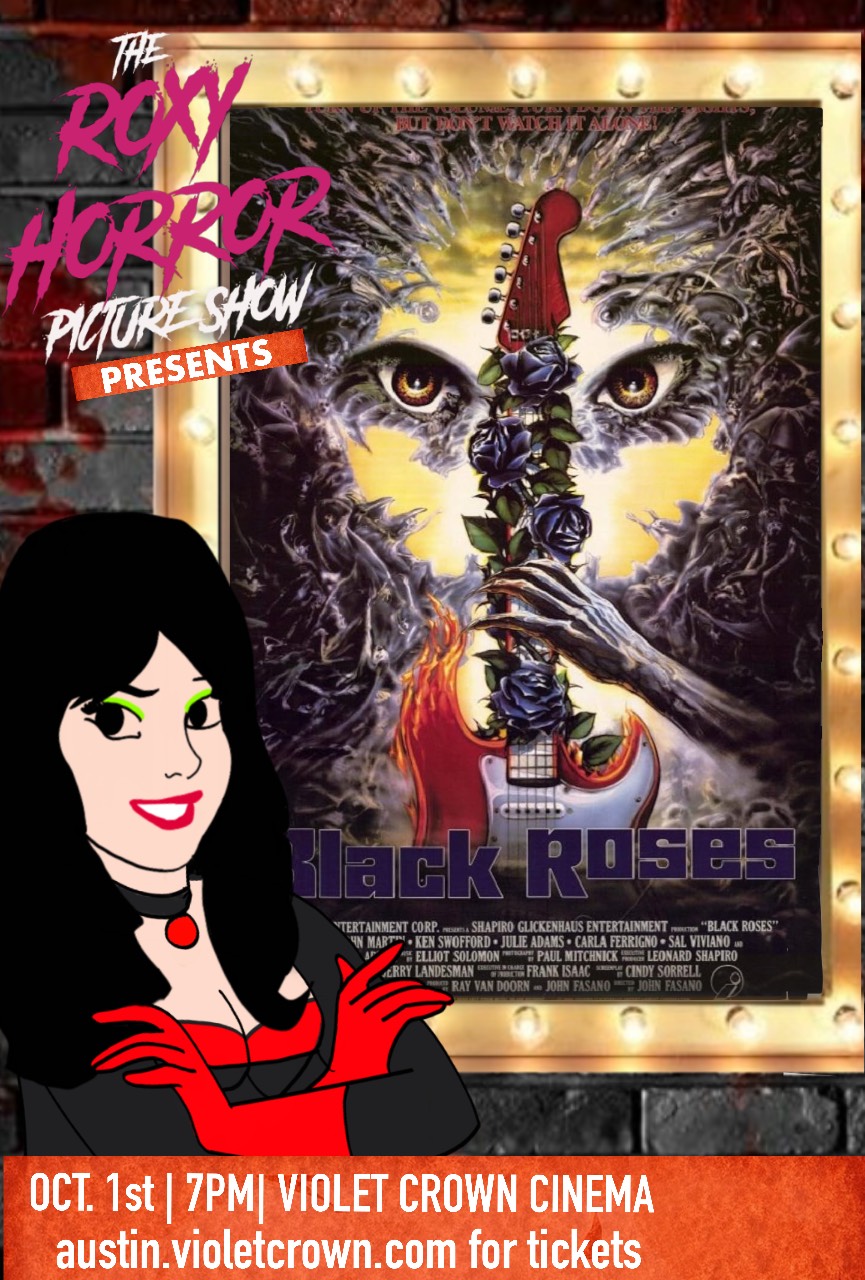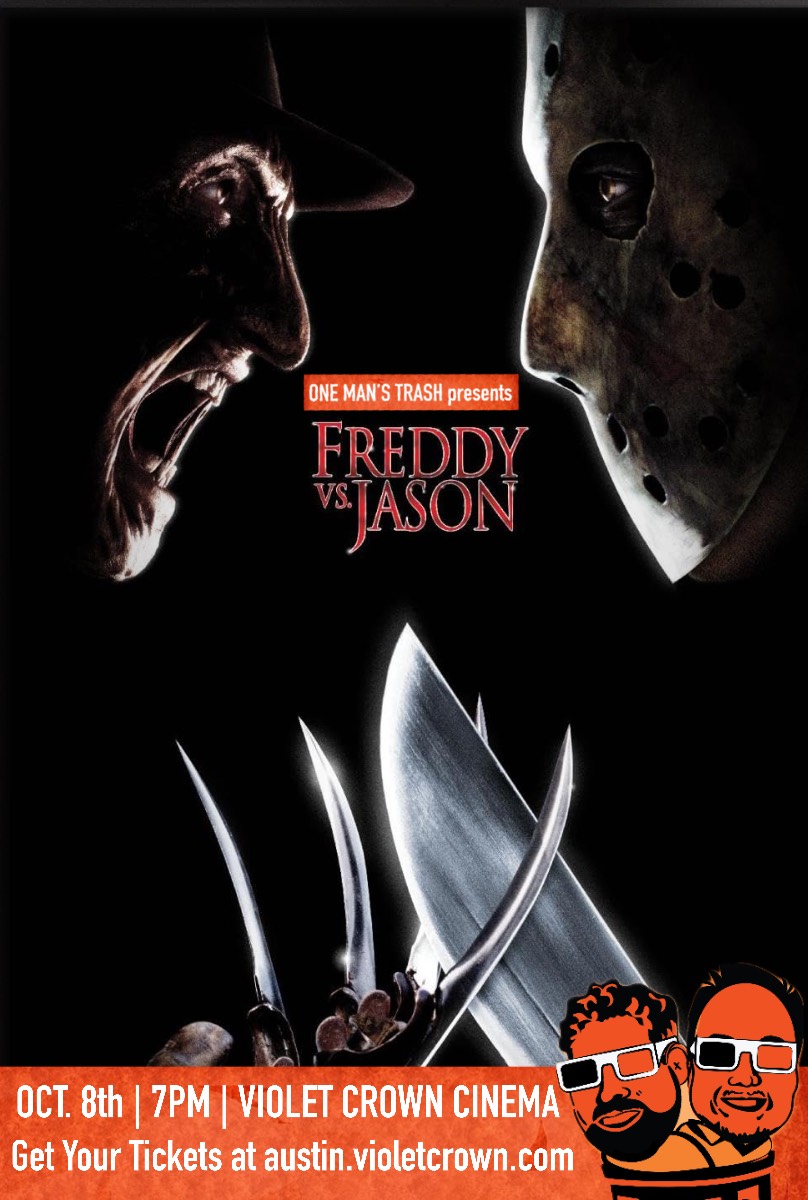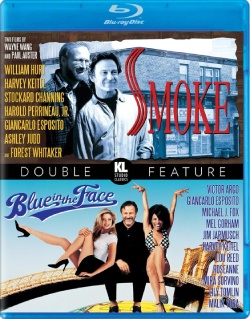Welcome back to “I’m All Out Of Love”, in which I take a pop culture subject (film series, director, actor, television show, etc) and dissect how my ‘love’ of them from early on slowly dwindled and what my current stance on them is.
Peter Jackson, in many ways, is the ultimate success story. From his meager beginnings as a nerdy film fan from New Zealand, he rose to make a bunch of extravagantly tasteless & gory comedies as an independent filmmaker before being hired as the man who would make one of the most successful film franchises of all time. He helped give fantasy films the merit they deserved, gave his home country of New Zealand a booming economic outlet and has revolutionized the way films are made. Yet, around a decade or so ago, the man started losing that spark. Maybe it was the Oscar wins, maybe it was creative burnout or maybe he just plumb ran out of creative juice, but since the close of his magnum opus trilogy, it seems like the Peter Jackson we all knew and loved became more contented as a filmmaker and thus not as exciting.
Don’t get me wrong. I’m not by any means decrying the merits of Peter Jackson as a filmmaker. Far from it. There’s a lot to admire in every Peter Jackson film. Even at his worst, he can bring an engaging performance or visual out that holds a lot of craft and skill. That being said, it’s easy to see that from Jackson’s last decade or so of output, he clearly has changed a lot as a filmmaker… and I’m not even talking about the fluctuating weight gain! But seriously, Jackson is a talented man, but I’ve seen a noticeable dip in quality in the years since his big win myself. Before we examine the current though, let’s look at the past.
The Spark

I’ve never read the J.R.R. Tolkein’s Lord of the Rings trilogy of books. I had read The Hobbit as a young boy and attempted to give the first book a shot, but couldn’t get past the first 50 or so pages of Fellowship of the Ring after realizing we were still in the damn Shire. Still, when the film of Fellowship came out in 2001, only a month after Harry Potter and the Sorcerer’s Stone had enchanted the nine year old me, fantasy was on the brain and the family had decided on making it a Christmas break outing.
Upon initial viewings in theaters, I wasn’t totally enraptured by the Lord of the Rings films. I enjoyed them, but the much of what seemed at the time like rather bloated story arcs didn’t grab me. Certain characters managed to make me curious, though. Concepts like two small guys trying to fight impossible odds, a man forced to bury his son and a man being turned into a pale faced obsessive creature by a magic ring all introduced darker thematic elements than I was used to at the time. Gollum’s scenes in Two Towers and Return of the King were really engaging to me because it was this dark tragic tale of obsession brought to gorgeous life by Andy Serkis and the effects people of WETA Digital. It was stuff like this that kept this fantasy trilogy in my mind long after viewing.
Years later, I would grow to appreciate the initial trilogy more and more as I re-watched them. The stories of these people (or dwarves or elves or hobbits or what have you) putting their lives on the line for the sake of Middle Earth and what it used to represent before the rise of Sauron gives a humanity to the stories that feature Orcs, dragons and trolls. The films also still stand out as true grand scale epics at a time when that style of filmmaking had gone missing in traditional Hollywood environments. Every element from the action to the production design to the creature effects to the performances to the script’s balance of all these tangled threads came together in a way few other films managed to do. There’s also a lot of historical significance to the way the films were made and what it represented when they were made, what the many Oscar wins for Return of the King did for fantasy and all that, but the fact that this trilogy was so well put together and filled with such passion on every production level really shined through in the highly entertaining and genuinely grand adventure that was the original trilogy.
The Love Affair

It took me awhile to discover the varied and complex trajectory of Mr. Jackson’s career. His initial independent films like Bad Taste, Meet the Feebles and Braindead clearly showed a love for the mad lunacy in the works of Sam Raimi and Monty Python, which worked for a resident fan of both those things like myself. The care free way those films treat gore, social taboos and sanity in general had this funny if occasionally overwhelming love for chaos. Yet, at the same time, there’s a clear attention to detail that makes the worlds in which these crazy characters inhabit feel like real lived in worlds for us to explore, a skill he would later master for the construction of Middle Earth. This would later carry on to films like The Frighteners, where Jackson first showed off his ability to strike genre style thrills with a much larger budget. One can even see traces of his horror roots in the Rings trilogy, with every Orc decapitation having the same brutal creativity that gave the zombie deaths in Braindead such an electric sense of timing and awe inspiring amount of carnage.
However, those aren’t the Peter Jackson films that stick close to me. The Lord of the Rings films even have a bit of a hard time competing with my favorite of Jackson’s works; Heavenly Creatures. Creatures is perhaps the most grounded and human of Jackson’s filmography, giving him the chance to use his visual flourishes in small yet damn impactful ways. The film’s focus on the relationship that builds between Melanie Lynsky & Kate Winslet is full of such passionate joy and curiosity that the knowledge of what’s to come by the end makes every frame showing their chemistry all the more tragic. We see them get to know each other, become fast friends and then completely destroy their lives in this subtle but highly emotional story. It’s full of tragic irony, regret and obsession in a way that few filmmakers could manage to pull off and it got Jackson the notice to start development on his grand trilogy. It’s a gorgeous and perfect piece of filmmaking that gives Jackson’s style a strong core of investment that keeps it so engaging twenty years after it’s initial release.
Nothing Lasts Forever

The common threads I’ve noticed in Jackson’s films are a sense of excess and grand scale. His low budget horrors had it, his Lord of the Rings films had it and his most recent films have it… but not often in a good way. Right from his first-post Rings effort with 2005’s King Kong remake, the troubles of his style became apparent in the endless cast of characters and unforgivingly lengthy 187 minute running time. For all the creature effects, big name stars and attention to detail, the film was ultimately an overblown version of the original 1933 film, which Jackson said was a major influence on him. Certain elements stood out, like Andy Serkis’ committed performance to the animal tendencies of the titular role that would prepare him for the monkey role of a lifetime in Rise and Dawn of the Planet of the Apes, especially for the scenes with Naomi Watts. That relationship brought some solid emotional weight to the overall bloated proceedings that no amount of time spent on that ship (which, for the record, was too damn long) or Jack Black eyebrow movements could honestly do.
Now, take the issues of King Kong, multiply it by about 5,000 and you get The Lovely Bones, Jackson’s muddled, offensive and daftly toned disaster of an attempted coming of age/supernatural/thriller/murder mystery/grief drama. The trouble is that there’s so much going on here and yet Jackson doesn’t know what to focus on. There’s the afterlife storyline with Saorise Ronan in front of a bunch of screen savers, the grieving family storyline with a completely miscast Mark Wahlberg, the mystery of Ronan’s death, the sudden comedic entrance of Susan Sarandon the drunken grandmother, the attempted capture of Stanley Tucci the creepy murderer neighbor and so much other extraneous crap. Any investment in the characters is shot by the horribly vapid attempts at dialogue for nearly every single character, the honestly cheap looking effects and the very noncommitted attempts at actually examining the horror of the situation at hand in favor of trying to market to teens. Aside from a genuinely great performance from Tucci, this is a boring drag of a miscalculation on every single front. None of what made Jackson the success that he was could be seen in Lovely Bones, not even an ounce of the talent, power and energy he once displayed with something as thematically similar to Bones as Heavenly Creatures. It’s still his weakest effort, but not his last disappointment.
When it was announced that Peter Jackson would take over directorial duties on the then two part Hobbit franchise, I was interested, but still slightly disappointed that Guillermo Del Toro would no longer be directing the films. I loved what Jackson did in the earlier films, but I wanted to see a different angle on this familiar material. Instead, we got more of what was roughly the same; the same style of action that Jackson used before, the same elaborate storytelling and the same love for New Zealand landscapes. Yet, despite feeling so familiar, The Hobbit films still aren’t nearly as satisfying as their predecessors. There’s stuff to enjoy; Martin Freeman makes for brilliant casting as Bilbo Baggins, Ian McKellan is as fun as ever in the Gandalf role, several action set pieces are well done and the effects at certain points are brilliant, especially when Gollum pops into An Unexpected Journey or Smaug shows up in The Desolation of Smaug. Yet, the severely uninteresting subplots, bits and pieces of filler teasing the events of the original trilogy & tediously lengthy yet largely unimpressive stretches of the very thin story from the book just kill much of the momentum. The detours also seriously damage any sort of genuinely engaging pacing or character development, causing characters like the underdeveloped Mary Sue newbie Thandriul or the various unremarkable members of the dwarf clan to have little worth investing in. Along with the bland CG Orc villains, the daft choice to film the trilogy in horrid looking 48 frames per second and the total waste of talents like Stephen Fry, Billy Connolly & Barry Humphries cements my problems with the trilogy. By the time I got to the conclusion of the endlessly repetitive action set pieces of Battle of the Five Armies, I just couldn’t see what was worth making this into a trilogy beyond the desire for more money.
Final Thoughts
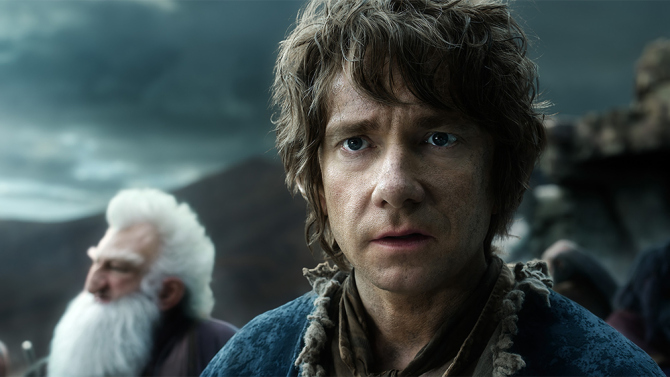
Long after he eventually passes, Peter Jackson will be remembered for many reasons; his integral part in film history, his contributions to his homeland of New Zealand and his power to ignite the passionate love of fantasy in the hearts and minds of many who grew up at the start of the new millennium. That being said, many an important filmmaker doesn’t keep up their relevance for long and, based on his work since the original Lord of the Rings trilogy, I fear that Jackson has already hit that point of irrelevance. The work he’s done in the last ten years hasn’t shown much evolution, which is a shame given how much evolution there was from Bad Taste to Heavenly Creatures to the Rings trilogy. He’s stagnated at the point where he’s become more obsessed with the detail of the environments and technical innovation of film rather than the overall story or characters. Basically, imagine if James Cameron had made non-documentary movies in between Titanic & Avatar and you get the idea. This becomes even more likely when you read interviews with Jackson that raise the potential for even more Middle Earth films, something which would likely alienate most fans of Middle Earth, cinematically or otherwise.
Now mind you, I don’t want this to happen. Despite my gripes with his latest projects, I do still have hope for Jackson. As he’s also stated many times during interviews for The Hobbit (including the one linked earlier), he wants to try moving on to smaller scale projects once the second trilogy is done and I’m all for that. After spending so many years with attempts at grand scale epics, a smaller change of pace seems to be a good idea for Jackson as a filmmaker. Hopefully, a more limited amount of resources will inspire a new spark of creativity that gets him out of the stale funk he’s currently been in, maybe calling back to his earlier low budget horror style a la one of his key inspirations Sam Raimi with Drag Me To Hell or a more grounded character study in the vein of Heavenly Creatures. Hell, as much as I did criticize the lack of character in his Kong and The Hobbit trilogy, there are golden nuggets of engaging character moments to find amongst the muddled story and lackluster character development. At least he hasn’t sunk to George Lucas levels of incompetence and inhumanity as a filmmaker. So I still do have hope that he can break from stagnating Shire that is hollow blockbusters and go on a new adventure that leads to some exciting corners he hasn’t explored in years. Then again, if Jackson does make more Middle Earth movies, he should at least throw us a bone and have more Vietnam vet frogs being addicted to drugs in them.



